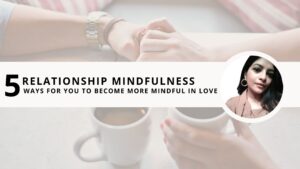You are the sum of the people you surround yourself with. These people come into your life through different types of relationships. While you choose some of them, some are there with you since birth. In this blog, you will explore these different relationships and understand how they impact your life.
Your relationships make a significant part of your life. As social animals, these relationships strongly hold how you navigate through life.
The emotional, social, and even financial support you get from your relationships is important for your mental and physical health.
To understand how these relationships impact your life, let’s discuss the 7 types of relationships you can have in life and the impact they can create.
7 Important Types of Relationships That Define Your Relationship Status
A wide range of people can come into the circle of your relationships like your friends, family, colleagues, lovers, etc. If you are an active social media user you may have noticed that some people even prefer to display their relationship status for social show off.
Often the word relationship is used to refer to your romantic relationships. While that’s one connotation of using it, the word “relationship” has a broader sense of view. It is not limited to romantic intimacy with the other person.
So, today, let’s move beyond the romance and understand the different types of relationships and their stand in your life.
7 Basic Types of Relationships
The majority of your relationships fall into these 7 basic categories. These relationships can overlap at times.
- Family
- Friends
- Acquaintances
- Sexual relationship
- Romantic relationship
- Situational relationship
- Workplace relationships
These relationships vary from each other in terms of closeness as there are many different types of relationships within each category. These are the types of relationships that you will experience in your life one way or the other.
Let’s understand them a little more.
1. Platonic relationship
This is more like a friendship where a person has a close and intimate relationship with the other person without any sex or romance.
This type of relationship falls into the following categories:
- Fondness
- Closeness
- Support
- Acceptance
- Honesty
- Respect
- Understanding
Platonic relationships can occur in a variety of settings. You can have this type of relationship with the same sex or the opposite sex. A spiritual relationship can take place with a colleague, class fellow, or a best friend. This type of relationship is very important for a healthy social life.
My platonic relationship exists with my two best friends, who have been a strong source of support and strength for me for more than 20 years now.
Research shows that a platonic relationship is important for various reasons. It can help you develop strong mental and physical health, and also help in decreasing the risk of depression and anxiety.
However, it is noteworthy that platonic relationships can transform over time and shift into sexual or intimate relationships.
2. Romantic Relationships
Romantic relationships are characterized by feelings of intimacy, attraction, and love towards another person. This type of relationship can vary, but the feelings mostly involve commitment and intimacy.
Experts have many details and explanations on how people experience love. They can also have different love languages to express their feelings.
The feeling of love can be explained in terms of:
- Passion
- Decision
- Intimacy
- Commitment
Romantic love and relationships are a mix of intimacy and passion. You should know that the feelings in a romantic relationship may vary as the relationship progresses over time.
Some people experience strong love and commitment at the start of their relationship. There is a chance that the feelings may fade as the relationship moves forward.
Hormonal changes also occur at the start. The brain releases a happy hormone called dopamine that causes this strong intimacy (or happiness) at the beginning of your relationship.
With time, the relationship grows, and you may feel a strong sense of maturity. This also reflects the respect and care you have for each other.
A romantic relationship plays a vital role in your life. Your healthy relationship with your romantic partner is easily visible in your personality.
It makes you feel more confident. It brings contentment and satisfaction in all ways. A peaceful mind and heart will always exude positivity; you can feel it from miles away.
But if you are in an unhealthy romantic relationship, it can ruin your peace of mind. It impacts all aspects of your life, which is reflected in your daily interactions. Such relationships cause trauma, which ultimately paves the way for negativity and lower self-esteem.
3. Codependent Relationships
Codependent relationships are dysfunctional and imbalanced types of relationships. This is when you have emotional, mental, and physical dependency on the other person.
It is also possible that both partners are equally dependent on one another. Both partners may switch their roles. At times, one may be the caretaker and the other may become the care receiver. However, this arrangement can change based on personal requirements and situations.
Here are the different signs that show if you are in a codependent relationship:
- One person is the caregiver and the other is the receiver.
- You try hard to avoid conflict with your partner.
- You ask for permission to do things.
- You rescue the other person from their actions.
- You do things to make them happy, even if you are uncomfortable.
- You feel lost at times and question the purpose of being in this relationship
- You encourage celebrating each other’s failures and successes, and are always there for each other.
You should know that not every codependent relationship is the same. They may vary in terms of severity. Such relationships have a strong impact on every other relationship, including parents, friends, family members, and coworkers.
Codependent relationships are great because you always have the support of your partner. But there are downsides to such relationships. If you are in such a relationship, some days you may feel neglected because you always try to be there for the other person.
4. Casual Relationships
This type of relationship is the dating phase of your relationship that involves sex without any expectations of commitment and monogamy. But you should also know that it is a vague term and can mean different things to different people.
Casual relationships can encompass situations like:
- Booty calls
- Sex buddies
- One-night stands
- Friends with benefits
These relationships may not be that relaxing and emotionally charged, but they contribute to a sense of social belonging and a sense of community. The effect of these relationships can go to extreme ends. While they may cause self-satisfaction with life and overall well-being, they also make all of it feel like nothing at times.
5. Open Relationships
Open relationships are non-monogamous. This is when one or people are sexually involved and are in a relationship with others. Both persons agree to be in a relationship/contact with other people, but with certain limitations.
It can happen in romantic relationships like marriage, dating, or casual relationships. There is a stigma attached to open relationships, but research still suggests that about 20-21% of adults are involved in such relationships.
Sometimes, being in an open relationship can also lead to getting attached to one of your partners, which can then ruin your mental health in the worst ways.
The likelihood of being in such a relationship also depends on your sexual orientation and gender. Men are more involved in open relationships than women, and gay or lesbian people are also more prone to such relationships.
Open relationships have benefits like increased sexual freedom and pitfalls like emotional pain and jealousy. Open relationships are more successful when the people involved in them establish strong emotional, sexual, and personal boundaries. When the couple can communicate their feelings and discomforts easily, that can make an open relationship a success.
6. Toxic Relationships
A toxic relationship is a type of relationship where your emotional, psychological, and physical well-being is undermined and neglected. Such relationships often make you feel unwanted, unsupported, and misunderstood.
It is not necessary that a toxic relationship only includes your lover or spouse. Sometimes you can also experience this toxicity from your family relationships. Your siblings, parents, and friends can also be toxic.
Such relationships are normally categorized by:
- Blaming
- Disrespect
- Hostility
- Jealousy
- Stress
- Poor communication
- Competitiveness
Sometimes, every person in the relationship can be toxic. For example, if you are feeling continuous negative thoughts or despair, then you are being toxic in your respective relationship.
Toxic relationships are harmful, stressful, and abusive sometimes. If you are in a toxic relationship, then create strong and defined boundaries to protect yourself.
It can also cause loneliness and have a detrimental effect on your physical and mental well-being.
7. Online Relationship
Relationships have moved beyond just face-to-face interactions. The modern world has given space to modern relationships. You can connect with others through digital media and other online platforms. These connections offer you a different way to socialize and reach people globally.
Fun fact: I met my partner online on Facebook almost 10 years ago. You can read the full story here.
Online relationships also come with their challenges. Online communication can be both good and tough, bringing both of you together but also complicating the situation. Finding a balance between the advantages of being connected online and the possible problems needs a careful understanding of how virtual relationships can affect how you feel and think.
How to Define Your Relationships?
Defining your relationships depends on a lot of factors. How you feel and what the other person thinks about the relationship makes a huge difference.
You can ask a few important questions to define your relationship:
- Do you have a romantic/intimate feeling for the other person?
- How patient are you in your relationship?
- What are your expectations from the relationship?
- How much time are you willing to invest?
- What is the future of your relationship?
- Are you currently involved with more than one person?
Answering these questions will help you figure out the status of your relationships. It will help you from mental and emotional exhaustion. Also, it will be helpful for both your physical and mental health.
Defining your relationship doesn’t mean committing for a longer period. It also means defining your limitations on involvement with the other person for your emotional security.
How Can You Keep Your Relationship Healthy?
Here are some of the ways that can help you have a healthy and successful relationship with your partner
- Mutual respect
- Showing appreciation and gratitude
- Listening to each other actively
- Being encouraging and supportive
- Feeling empathy
- Trusting each other
- Staying loyal & committed
Conclusion
I hope learning about these different types of relationships will give you more clarity on your relationship status.
While every type of relationship impacts your life in different ways, as we just read, the most important thing is to stay true to yourself.
For example, I don’t support an open relationship for all the emotional havoc it can create with your mental health. My romantic relationship with my partner is the most sacred relationship I have created outside my family bonds. It is the one I wish and work to protect at all costs.
For you, the situation can be totally different. I support your power to have that choice and decide for yourself.
However, it all comes down to how these relationships affect the other areas of your life. It all comes to self-analysis and self-realization.
With that, I hope I was able to help you understand your relationship status a little better. Thank you for reading, enjoy the rest or your day!



